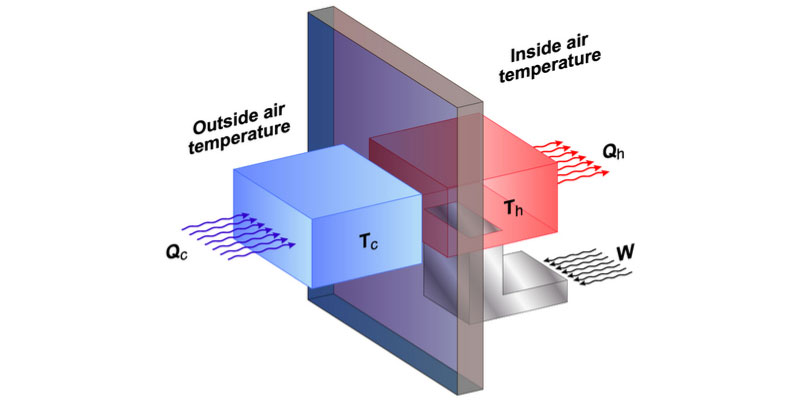Cooling capacity is the measurement of a cooling system and its ability to remove heat from a space. SI units are watts (W). They can also be described in tons to signal how much water at X temperature can be frozen in X amount of time. British Thermal Unit (BTU) is the necessary temperature to increase 1 pound of water by 1 degree Fahrenheit. ‘BTUs per hour’ signify how much heat per hour a unit can dissolve from the air.
Cooling capacity can also be referenced via tonnage. If someone mentions a “2-ton air conditioner,” they are talking about its cooling capacity, not its weight in size. “Ton” specifically represents the amount of cooling power a ton of ice would offer over a 24-hour period. For reference, 1 ton of refrigeration is equivalent to 211 kJ/min or 200 Btu/min.
How many watts is a 1 ton AC?
A 1 ton capacity AC typically uses about 1,200 watts of electricity. If you run your AC for eight hours a day, you’d consume 9,600 watts per day. The average electricity rate in the US is $0.12/kWh.
You can control the power consumption of inverter AC units by increasing thermostat temperature, and thus decreasing compressor speed—this automatically reduces power consumption.
Load Calculation: Find out how much cooling capacity you need
A load calculation, also referred to as a sizing for an AC or heat pump, will give you a number to focus on that represents your cooling capacity needs. Load calculation must be performed by a professional heating and cooling expert.
Precise calculations take a variety of factors into the equation, including:
- Total square footage
- Quality and amount of building insulation
- How many windows and in which direction do they face?
- How much shade or natural cooling elements does a building possess?
Without a load calculation, it’s all too easy to end up with a unit that is too large or too small for your needs, both of which work counterproductively and can waste a lot of money. If your AC is too small, it will not have enough power to keep your space cool. On the other hand, if your AC unit is too big, it will continually cycle on and off—leading to higher electric bills than necessary and decreased efficiency. An improperly sized unit will struggle to support adequate humidity levels, thus decreasing the overall comfort of an environment. This is especially an issue for server rooms where humidity levels are crucial to performance of equipment.
Leave it to us to handle load calculation, along with everything else! From weddings to complicated server rooms, we’ve made it our mission to install energy efficient portable AC units tailored to each client’s needs.
Cost of AC & Cooling Capacity
Improper cooling capacity for a space can lead to increased costs to run your AC. Other factors that can cause cooling costs to spike:
- The size of the room, cooling needs
- The temperature of the environment you are trying to cool
- Desired thermostat temperature—lower temperatures generate higher costs
Talk to us about ways you can cut back cooling costs!

